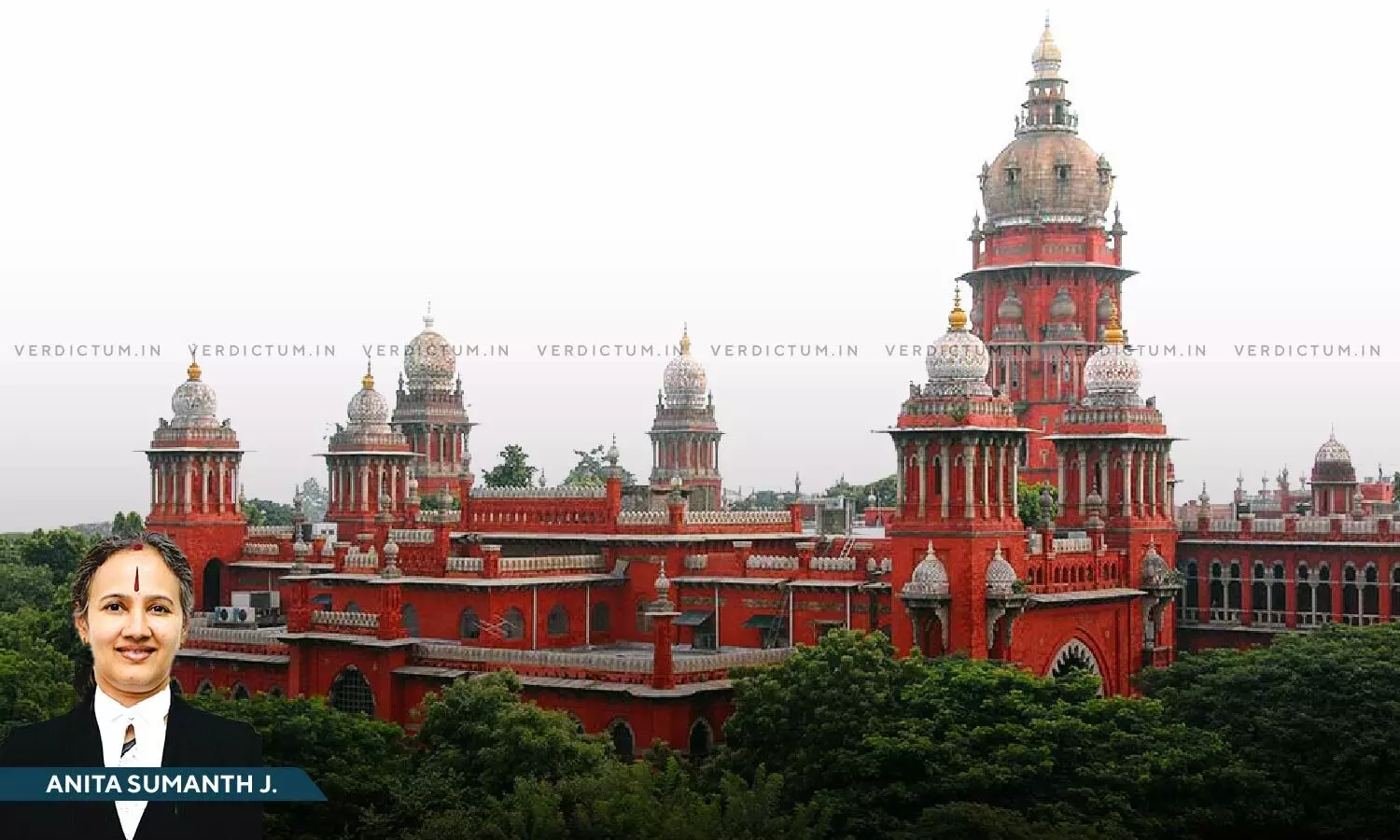
Ensure Compliance With Mandate Of Section 46 (4) CrPC: Madras HC Directs State To Frame Guidelines For Arrest Of Woman After Sunset
 |
|The Madras High Court has directed the State to form proper guidelines, for the arrest of women after sunset and before sunrise, and to ensure compliance with the mandate under Section 46(4) of the Criminal Procedure Code, 1973 (CrPC) even in exceptional, urgent and emergent situations.
The Bench of Justice Anita Sumanth observed that “...that the prayer for compensation, in light of the respondents having established the existence of exceptional circumstances for arrest, has to be denied. I leave the legal question on the impact of the procedural irregularity on an arrest of a woman open, to be determined in a more appropriate matter. As a foot note, I believe that it would be, in the fitness of things, for the authorities to apply their mind to this question and frame appropriate guidelines to ensure compliance with the mandates under Section 46(4) even in exceptional, urgent and emergent situations.”
Advocate Shri Varshini V. appeared for the petitioner and Additional Advocate General P. Kumarsen appeared for the respondents.
In this case, the petitioner, a journalist was aggrieved by her arrest by 4th respondent- the Inspector of Police, for offences under Section 75(1)(c) of the Tamil Nadu City Police Act, 988 and Sections 506(1) and 505(1)(b) of the Indian Penal Code, 1860 (IPC).
The Complaint was lodged against the petitioner for distributing pamphlet which contained defamatory observations about the then Chief Minister of Tamil Nadu. These pamphlets were distributed among the public, right outside the AIADMK head office. And when asked about the propriety of her actions, the petitioner threatened the complainant with dire consequences. Thereafter the petitioner was arrested around 10 p.m. without prior permission of the Judicial Magistrate.
The petitioner had moved the plea and has sought a mandamus directing the respondents to compensate her by paying a sum of Rs.25.00 lakhs. She further had sought a direction to R1 to R3, to initiate disciplinary action against the concerned officers.
The Counsel for the respondents submitted that as per section 46(4) of CrPC while compliance with all conditions were, indeed, mandatory, but in exceptional circumstances, an immediate arrest was permitted, though in the presence of a woman police officer. The requirement for submission of written report for obtaining prior permission of the Judicial Magistrate, in such situation, could be a post-arrest event, as such procedures would delay the arrest, creating avenues for law and order disturbance and danger to the public.
The High Court noted that even though the arrest was made with the assistance of police constable (woman) but no prior permission was obtained from the Judicial Magistrate concerned as per the mandate of Section 46 (4) of CrPC.
“I am thus of the view that there is nothing untoward in the decision of the authorities that there were exceptional circumstances warranting the arrest. After all, the exceptionality or otherwise of circumstances would have to be seen in the context of the events of 25.09.2012. The existence of circumstance necessitating action must be left to be determined by the authorities and unless extreme perversity is made out or the facts indicate otherwise, one would not interfere with such a decision.” observed the High Court.
However, the High Court further expressed that the Supreme Court while deciding a writ petition filed by the Christian Community Welfare Council of India, had issued directions regarding the procedure for arresting woman. One of the directions issued was that “no female person shall be detained or arrested without the presence of a lady constable and in no case after sunset and before sunrise.”
The High Court further said that even though the Supreme Court agreed with the spirit and object behind this direction they felt that strict implementation of the directions might not be practical and hence watered it down to align with practical considerations and emergent situations.
Decision making in such events becomes very subjective and sometimes, questionable, and it is, perhaps, to avoid this that the provisions of Section 46(4) are absolute, the balance tipping in favour of the woman.” observed the High Court.
“Let suitable guidelines be issued in this regard. This writ petition is disposed declining the request for mandamus. Guidelines, as directed above, be framed and placed before the Court within a period of eight (8) weeks from date of receipt of a copy of this order.” concluded the Court.
Cause Title- S. Salma v. The State of Tamil Nadu